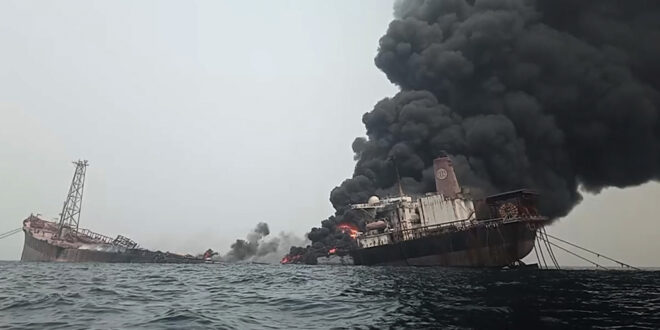One night, a sudden explosion jolted a man awake and threw him to the ground. Quickly, he grabbed his phone and ID, strapped on a life jacket, and headed to the upper deck. Facing the advancing flames, he braced himself to leap almost 100 feet (30 meters) into the sea.
The explosion occurred on the Trinity Spirit, an aging, repurposed oil tanker anchored 15 miles (24 km) off Nigeria’s coast, which extracted crude oil from the sea bed. This incident led to the death of five workers, with two more presumed dead. Aganyebi, one of the survivors, credits divine intervention for his escape, along with two other crew members. They were rescued by fishermen as the ship, engulfed in flames and carrying 40,000 barrels of oil, sank.
The February blast of the previous year marks one of the most catastrophic events on an oil vessel or platform in recent times. An investigation by The Associated Press, which included examining court records, ship databases, and crew interviews, uncovered that the 46-year-old Trinity Spirit was in a dire state of decay. The safeguards meant to ensure its safe and legal operation—like yearly inspections, flag registration, and insurance—had been progressively neglected.
The Trinity Spirit is representative of a broader issue with elderly tankers repurposed for oil storage and extraction, despite being on the verge of mechanical failure. Over the past decade, at least eight such vessels have been decommissioned due to fires, significant safety risks, or worker fatalities, per AP’s findings. Moreover, over 30 tankers older than the Trinity Spirit are still in use for oil storage globally.
Jan-Erik Vinnem, a professional dedicated to studying offshore oil production risks, expressed his astonishment at the condition of oil ships in Africa.


